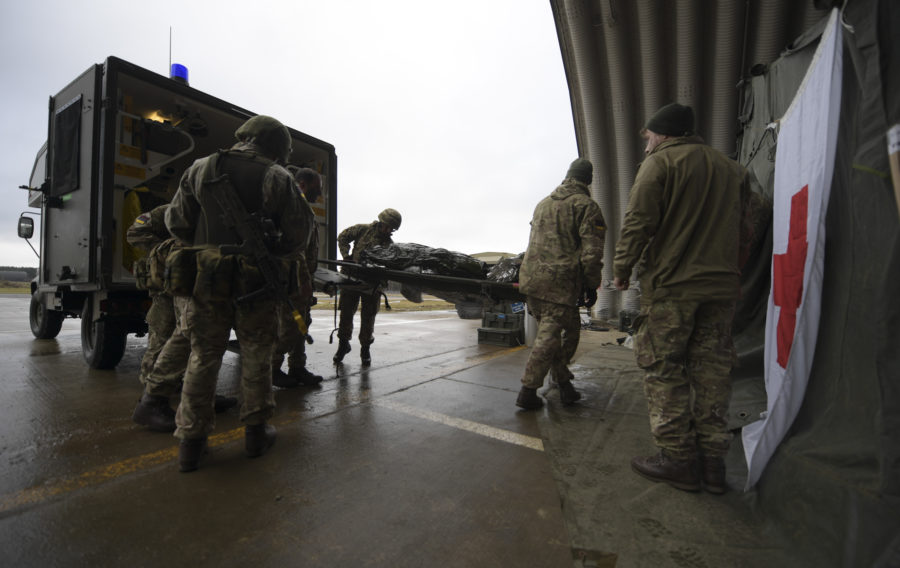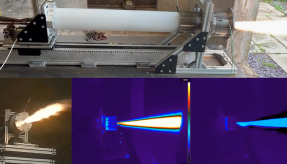
The Defence Science and Technology Laboratory (Dstl) has funded pioneering new techniques to treat injured limbs and reduce battlefield amputations.
Biomedical engineers from the University of Strathclyde in Glasgow have developed an innovative approach with support from Dstl via the Defence and Security Accelerator. Their research forms a response to conflicts in Iraq and Afghanistan, where improvised explosive devices or IEDs are commonplace – having caused countless traumatic and potentially life-changing injuries.
A three-stage approach pairs practical field kit with specialist techniques once the patient is evacuated. Initially, a specialist tourniquet is applied to the limb which exerts pressure at specific points. A cooling sock is then wrapped around the tissue itself to prevent further damage. Once at the hospital, the affected limb is placed inside a protective box to sustain it while doctors attempt a recovery. Crucially, this box is filled with decontaminated air to reduce the risk of infection while it provides a continuous supply of blood to the area affected.
The technology itself weighs only five kilogrammes – an important consideration for combat medics on the battlefield. The system could have non-combat applications as well – during natural disasters or in remote locations, for example.
“While this technique may not be right for every injury, it is a hugely important innovation that could save the limbs of many more of those affected,” said Dr Neal Smith, Capability Adviser for Medical Sciences at Dstl. “It’s a fantastic example of where we work with academics to fund life-changing research which has been turned into a product to improve the quality of life of those injured in service.”
Professor Terry Gourlay, Head of the Department of Biomedical Engineering at Strathclyde University added: “We looked at every stage of the journey an injured soldier follows after injury to ensure our solution was designed specifically for them. The system we have developed is essentially a life-support system for the limb which gives doctors precious time to attempt to repair damage while ensuring the safety of the patient.”
Following successful trials, the system will be made available commercially and it could one day form part of the medical kit in every frontline unit.
Don’t miss out on the fantastic chance to attend, sponsor or exhibit at DPRTE 2018. Book now at www.dprte.co.uk/book-now.
If you would like to join our community and read more articles like this then please click here.








